高三英语上学期unit-12-revision
- 格式:pdf
- 大小:792.65 KB
- 文档页数:9

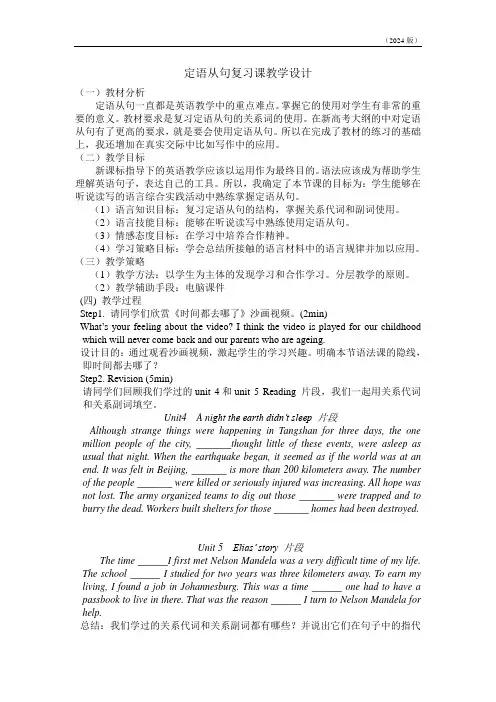
定语从句复习课教学设计(一)教材分析定语从句一直都是英语教学中的重点难点。
掌握它的使用对学生有非常的重要的意义。
教材要求是复习定语从句的关系词的使用。
在新高考大纲的中对定语从句有了更高的要求,就是要会使用定语从句。
所以在完成了教材的练习的基础上,我还增加在真实交际中比如写作中的应用。
(二)教学目标新课标指导下的英语教学应该以运用作为最终目的。
语法应该成为帮助学生理解英语句子,表达自己的工具。
所以,我确定了本节课的目标为:学生能够在听说读写的语言综合实践活动中熟练掌握定语从句。
(1)语言知识目标:复习定语从句的结构,掌握关系代词和副词使用。
(2)语言技能目标:能够在听说读写中熟练使用定语从句。
(3)情感态度目标:在学习中培养合作精神。
(4)学习策略目标:学会总结所接触的语言材料中的语言规律并加以应用。
(三)教学策略(1)教学方法:以学生为主体的发现学习和合作学习。
分层教学的原则。
(2)教学辅助手段:电脑课件(四) 教学过程Step1. 请同学们欣赏《时间都去哪了》沙画视频。
(2min)What’s your feeling about the video? I think the video is played for our childhood which will never come back and our parents who are ageing.设计目的:通过观看沙画视频,激起学生的学习兴趣。
明确本节语法课的隐线,即时间都去哪了?Step2. Revision (5min)请同学们回顾我们学过的unit 4和unit 5 Reading 片段,我们一起用关系代词和关系副词填空。
Unit4 A ni ght the earth didn’t sleep 片段Although strange things were happening in Tangshan for three days, the one million people of the city, _______thought little of these events, were asleep as usual that night. When the earthquake began, it seemed as if the world was at an end. It was felt in Beijing, _______ is more than 200 kilometers away. The number of the people _______ were killed or seriously injured was increasing. All hope was not lost. The army organized teams to dig out those _______ were trapped and to burry the dead. Workers built shelters for those _______ homes had been destroyed.Unit 5 Elias’ story 片段The time ______I first met Nelson Mandela was a very difficult time of my life. The school ______ I studied for two years was three kilometers away. To earn my living, I found a job in Johannesburg. This was a time ______ one had to have a passbook to live in there. That was the reason ______ I turn to Nelson Mandela for help.总结:我们学过的关系代词和关系副词都有哪些?并说出它们在句子中的指代以及所做的成分。
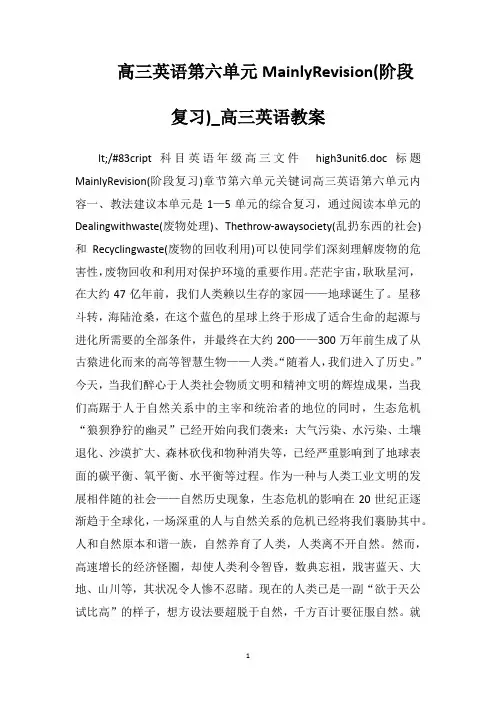
高三英语第六单元MainlyRevision(阶段复习)_高三英语教案lt;/#83cript科目英语年级高三文件high3unit6.doc标题MainlyRevision(阶段复习)章节第六单元关键词高三英语第六单元内容一、教法建议本单元是1—5单元的综合复习,通过阅读本单元的Dealingwithwaste(废物处理)、Thethrow-awaysociety(乱扔东西的社会)和Recyclingwaste(废物的回收利用)可以使同学们深刻理解废物的危害性,废物回收和利用对保护环境的重要作用。
茫茫宇宙,耿耿星河,在大约47亿年前,我们人类赖以生存的家园——地球诞生了。
星移斗转,海陆沧桑,在这个蓝色的星球上终于形成了适合生命的起源与进化所需要的全部条件,并最终在大约200——300万年前生成了从古猿进化而来的高等智慧生物——人类。
“随着人,我们进入了历史。
”今天,当我们醉心于人类社会物质文明和精神文明的辉煌成果,当我们高踞于人于自然关系中的主宰和统治者的地位的同时,生态危机“狼狈狰狞的幽灵”已经开始向我们袭来:大气污染、水污染、土壤退化、沙漠扩大、森林砍伐和物种消失等,已经严重影响到了地球表面的碳平衡、氧平衡、水平衡等过程。
作为一种与人类工业文明的发展相伴随的社会——自然历史现象,生态危机的影响在20世纪正逐渐趋于全球化,一场深重的人与自然关系的危机已经将我们裹胁其中。
人和自然原本和谐一族,自然养育了人类,人类离不开自然。
然而,高速增长的经济怪圈,却使人类利令智昏,数典忘祖,戕害蓝天、大地、山川等,其状况令人惨不忍睹。
现在的人类已是一副“欲于天公试比高”的样子,想方设法要超脱于自然,千方百计要征服自然。
就拿上海的快餐盒来说,由于人民生活水平的日益提高,人们生活节奏的加快,快餐受到大众的青睐。
快餐盒这种难消解的泡沫塑料正制造着另一种意义上的“白色恐怖”。
有人计算过,光上海人每人用去的快餐盒,15年内就能给新加坡盖上一条白色的“毯子”。
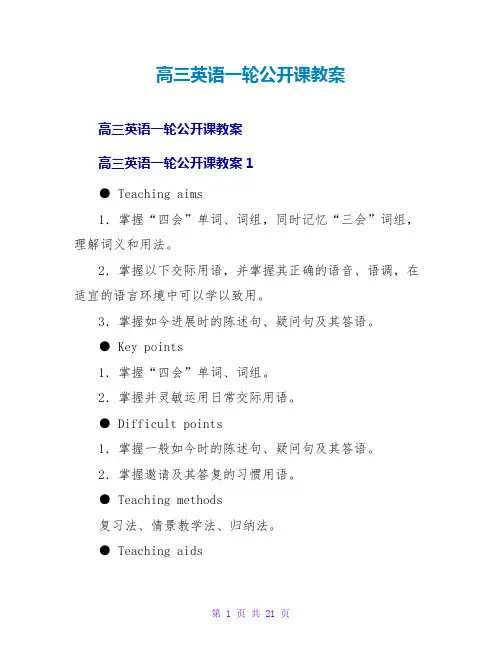
高三英语一轮公开课教案高三英语一轮公开课教案高三英语一轮公开课教案1● Teaching aims1.掌握“四会”单词、词组,同时记忆“三会”词组,理解词义和用法。
2.掌握以下交际用语,并掌握其正确的语音、语调,在适宜的语言环境中可以学以致用。
3.掌握如今进展时的陈述句、疑问句及其答语。
● Key points1.掌握“四会”单词、词组。
2.掌握并灵敏运用日常交际用语。
● Difficult points1.掌握一般如今时的陈述句、疑问句及其答语。
2.掌握邀请及其答复的习惯用语。
● Teaching methods复习法、情景教学法、归纳法。
● Teaching aids投影仪、微机、图片、投影片课件Lesson 89教学演示.ppt。
● Teaching proceduresStep 1 RevisionRevise the word “have” and the Present Continuous Tense.Step 2 Presentation展示动画《Talk about food and drink.swf》中的listening的场景,答复以下问题后,展示其他的对话情境,播放顺序根据学生的承受程度而定。
Step 3 Read and act1. 每个对话在展示时,都先隐藏文字听声音,让学生说出对话的大意。
2. 给出文字,学生理解对话的内容后,分别跟读、朗读。
3.引导学生熟悉使用这些交际用语,静音状态下,让学生看动画,演示对话内容。
4.让学生分组读对话〔可先给2分钟准备〕。
Step 4 Consolidation*根据场景Interview的对话,填写表格Fill in the blanks:Peggy’s breakfasther favourite sportsJimmy’s breakfastthe thing he likes to do*用some或any完成以下句子。
1. I have ____milk here, but I don’t have ____tea.2. —Would you like ____ cakes? —Two, please.3. Is there ____food on the table?4 .Can I have ____meat? Sony, you can’t. Therei sn’t____.Answers: 1. some, any 2. some 3. any 4. some, any Step 5 Summary让学生归纳、总结本课重点句型,培养他们良好的学习方法和动脑习惯。
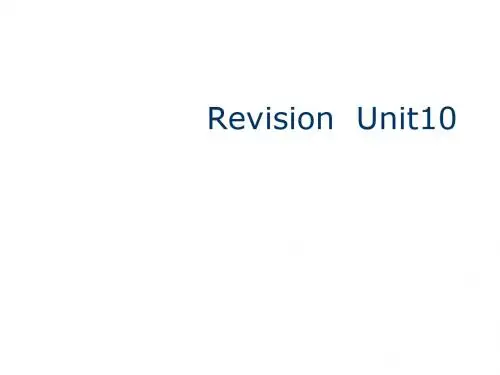
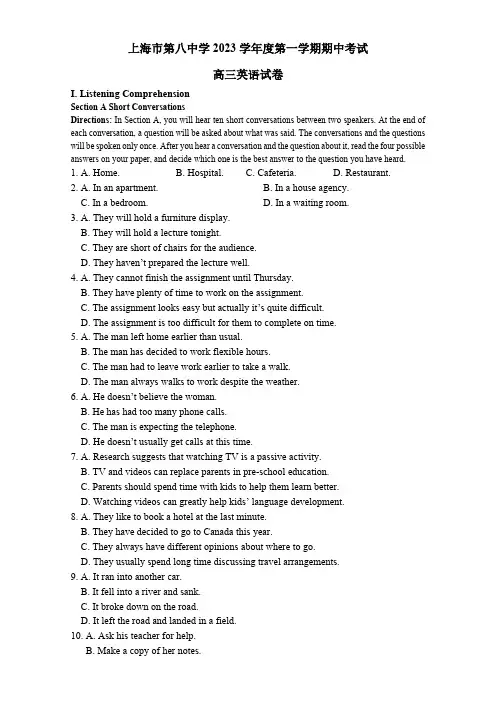
上海市第八中学2023学年度第一学期期中考试高三英语试卷I. Listening ComprehensionSection A Short ConversationsDirections: In Section A, you will hear ten short conversations between two speakers. At the end of each conversation, a question will be asked about what was said. The conversations and the questions will be spoken only once. After you hear a conversation and the question about it, read the four possible answers on your paper, and decide which one is the best answer to the question you have heard.1. A. Home. B. Hospital. C. Cafeteria. D. Restaurant.2. A. In an apartment. B. In a house agency.C. In a bedroom.D. In a waiting room.3. A. They will hold a furniture display.B. They will hold a lecture tonight.C. They are short of chairs for the audience.D. They haven’t prepared the lecture well.4. A. They cannot finish the assignment until Thursday.B. They have plenty of time to work on the assignment.C. The assignment looks easy but actually it’s quite difficult.D. The assignment is too difficult for them to complete on time.5. A. The man left home earlier than usual.B. The man has decided to work flexible hours.C. The man had to leave work earlier to take a walk.D. The man always walks to work despite the weather.6. A. He doesn’t believe the woman.B. He has had too many phone calls.C. The man is expecting the telephone.D. He doesn’t usually get calls at this time.7. A. Research suggests that watching TV is a passive activity.B. TV and videos can replace parents in pre-school education.C. Parents should spend time with kids to help them learn better.D. Watching videos can greatly help kids’ language development.8. A. They like to book a hotel at the last minute.B. They have decided to go to Canada this year.C. They always have different opinions about where to go.D. They usually spend long time discussing travel arrangements.9. A. It ran into another car.B. It fell into a river and sank.C. It broke down on the road.D. It left the road and landed in a field.10. A. Ask his teacher for help.B. Make a copy of her notes.C. Attend the revision lessons.D. Go to the chemistry lab this evening.Section BDirections: In Section B, you will hear two short passages and one longer conversation, and you will be asked several questions on each of the passages and the conversation. The passages and the conversation will be read twice, but the questions will be spoken only once. When you hear a question, read the four possible answers on your paper and decide which one would be the best answer to the question you have heard.Questions 11 through 13 are based on the following passage.11. A. Someone would follow her immediately.B. Someone would take her out of the building.C. Someone would tell her that nothing was wrong.D. Someone would let her know what actually happened.12. A. She went downstairs at once.B. She lost her way in the building.C. She looked for what to take with her.D. She screamed back ‘Everything is OK!’13. A. They didn’t get suitable tools.B. They didn’t hear the explosion.C. They didn’t obey the command.D. They didn’t leave the building soon enough.Questions 14 through 16 are based on the following passage.14. A. The sales of newspapers are declining.B. Newspapers are selling at a high price.C. Too many people wait in line to buy newspapers.D. Passengers in train stations take no interest in newspapers.15. A. To explain why people are dishonest in some cases.B. To describe the unique processes that the survey underwent.C. To introduce a well-known TV programme about psychology.D. To illustrate that WHSmith’s new idea may not work as planned.16. A. Banks. B. Large supermarkets.C. Department stores.D. Neighbourhood shops.Questions 17 through 20 are based on the following conversation.17. A. A professor giving advice on parenting.B. A member of high school authorities.C. A researcher of teenage psychology.D. An expert specializing in sleep.18. A. 30 minutes. B. 20 minutes. C. 10 minutes. D. 3 minutes.19. A. Shortage of sleep. B. Staying up all night.C. Owing classmates money.D. Falling asleep in class.20. A. It appears in the morning. B. It reminds people to wake up.C. It makes people want to sleep.D. It helps teenagers to be energetic.II. Grammar and VocabularySection ADirections: After reading the passage below, fill in the blanks to make the passage coherent and grammatically correct. For the blanks with a given word, fill in each blank with the proper form of the given word; for the other blanks, use one word that best fits each blank.The Zeigarnik EffectHave you ever found yourself thinking about a partially finished project for school or work when you were trying to focus on other things? Or perhaps you wondered what (21)________(happen) next in your favorite TV show or film series. If you have, you’ve experienced the Zeigarnik effect. You tend to remember unfinished tasks better than (22)_______ you have finished. Knowledge of the Zeigarnik effect can be put into use in everyday life.The effect is especially well suited for helping overcome delaying an action to (23) _______ later time. We often put off big tasks (24) ________ (perceive) as overwhelming. However, the Zeigarnik effect suggests the key to overcoming procrastination(拖延症) is to just get started. The first step could be (25)________ small and seemingly insignificant.The Zeigarnik effect can be useful for students who are studying for an exam. The effect tells a fact that breaking up study periods (26) _______ actually improve recall. So instead of cramming for an exam all in one sitting, breaks in (27) _______ the student focuses on something else should be scheduled. This will cause intrusive thoughts, enabling students to rehearse and consolidate the information that requires (28) _______ (remember), leading to better recall when they take the exam.The Zeigarnik effect also points to reasons why people may experience mental health problems. (29)________ an individual leaves important tasks incomplete, the intrusive thoughts can lead to stress, anxiety, difficulty (30) ______ sleeping, and emotional distress. Conversely, completing a task can give an individual a sense of accomplishment and lead to a feeling of closure that can improve psychological well-being.Section B (10分)Directions: Complete the following passage by using the words in the box. Each word can only be used once. Note that there is one word more than you need.A. assumeB. exclusiveC. handfulD. influentiallyE. journeyF. majorityG. originalH. preciselyI. stageJ. transformK. upliftingThe myth of ‘going viral (病毒的)’ on the InternetThe internet is supposedly a hive(蜂巢) of virality. When we see a Weibo post with 10,000 shares or a Tiktok video with 5 million views, we 31 this popularity is driven by trillions of shares, like infected individuals passing along the flu.Do popular ideas and products really go “viral”? For a long time, nobody could besure. It was hard to 32 track word-of-mouth messages. But online, scientists can actually follow the 33 of a piece of information as it travels around the Internet.In 2012, researchers from Yahoo studied the spread of messages on a social network. Their conclusion: nothing really ever goes viral. More than 90% of the messages didn’t spread at all. The vast 34 of the news that people see on the social network—around 95%—comes directly from its 35 source or from one degree of separation.Popularity on the Internet is still driven by the biggest broadcasts—not by a million 1-to-1 shares, but rather by a(n) 36 of 1-to-1 million shares. Such broadcasts used to be 37 to big broadcast companies, like TV channels and FM stations. Now there are new hot points on the Internet, like a top star’s post.We want to believe the viral myth because it’s 38 . It promises small-time writers, photographers and videographers that a moment’s inspiration can 39 into sudden fame. It holds up the Internet as a perfect 40 for grassroots, where anybody can become a star if they make something good enough. In the end, virality is a myth covering up the fact that the Internet is still run by Goliaths (巨人歌利亚).III. Reading Comprehension45’Section A15'Directions: For each blank in the following passages there are four words or phrases marked A, B, C and D. Fill in each blank with the word or phrase that best fits the context.The World Health Organization (WHO) defines health as "a state of complete physical, mental and social well-being and not merely the absence of disease or infirmity". "Yet when we think of health, we tend to ____41_____ physical well - being at the expense of mental health. Instead, we should tackle mental health the same way we tackle physical health---with an eye towards preventing disease by addressing the foundational forces that cause us to be sick or well.About 15 percent of the world’s diseases are mental illnesses. Depression is one of the most common mental illnesses, ____42_____ an estimated 300 million people around the world. Depression is so widespread that the WHO has ____43_____ that, by 2030, it will be the leading cause of the global disease burden.Mental illness may be even more common than we think. Many mental health challenges are likely ____44_____ . There are a number of reasons for this. They include differences of opinion within the mental health field about the characteristics of these disorders, as well as changes to how we study them across populations and cultures. We also have a long way to go before we create a culture where stigma no longer ____45_____ people with mental illness from getting assistance. Thirty - eight percent of Americans have said they are "definitely or probably"____46_____ to have a person with mental illness move next door to them. Their attitudes make it more likely that many people with mental illness will remain under the radar, making it ____47_____ toaccurately assess their true numbers.Health---both physical and mental----is a ____48_____ of the social, economic, and environmental conditions in which we live. Our minds, just like our bodies, are shaped by complex factors, including where we live, our genetics, our childhood experiences, and our ____49_____ to material resources. Income, ____50_____, is one of the most significant influences on health and is linked to a number of common mood - anxiety disorders. From 2009 to 2013, 8.7 percent of people with annual incomes below the federals poverty line were reported to experience "serious psychological distress, "compared with the lower levels of psychological distress reported by individuals with higher annual incomes.If we ____51_____ an arm or develop an infectious disease, it will be difficult for anyone to consider us healthy. If, however, we struggle with mental illness----such as depression, anxiety, or post-traumatic stress disorder(PTSD) ---- it is possible that our disease will ____52_____ few outward symptoms. At the same time, the stigma that is still too often ____53_____ to mental illness can make those who develop a disorder less likely to seek the help they need. Given these challenges, and the reasons I have listed, it is ___54______ that we address mental health with as much energy and insight as we apply to physical concerns. Our health deserves ____55_____ less.41. A. prefer B. prioritize C. preconsider D. prejudice42. A. suffering B. changing C. affecting D. insulting43. A. projected B. designed C. criticized D. advertised44. A. posed B. misunderstood C. found D. underreported45. A. helps B. kills C. prevents D. requires46. A. unwilling B. evaluated C. relaxed D. eager47. A. possible B. necessary C. convenient D. hard48. A. factor B. product C. creation D. foundation49. A. imagination B. concept C. access D. use50. A. instead B. for example C. however D. therefore51. A. open B. raise C. cross D. break52. A. hide B. present C. relieve D. improve53. A. adjusted B. adapted C. attached D. appointed54. A. efficient B. effective C. obvious D. critical55. A. nothing B. something C. somebody D. nobodySection BDirections: Read the following three passages. Each passage is followed by several questions or unfinished statements. For each of them there are four choices marked A, B, C and D. Choose the one that fits best according to the information given in the passage you have just read.(A)The turning point of my life was my decision to give up a promising business career and study music. My parents, although sympathetic, and sharing my love of music, disapproved of it as a profession. This was understandable in view of the family background. My grandfather had taught music for nearly forty years. Though much respected in the community, he earned barely enough to provide for his large family. As a consequence of this example in the family, the very mention of music as a profession carried with it a picture of a risky existence with uncertain financial rewards. My parents insisted on college instead of a conservatory of music and to college I went ---quite happily, as I remember, for although I loved my violin and spent most of my spare time practicing, I had many other interests.Before my graduation, the family met with severe financial reverses and I felt it my duty to leave college and take a job. Thus I launched upon a business career ---which I always think of as the wasted years.Now I do not for a moment mean to disparage(藐视) business. My whole point is that it was not for me. I went into it for money, and aside from the satisfaction of being able to help the family, money is all I got out of it. It was not enough. From being merely discontented I became miserable. I continued to make money, and finally, bit by bit, accumulated enough to enable me to go abroad to study music. The family being once more solvent(有偿付能力的), and my help no longer necessary. I resigned from my position and, feeling like a man released from jail, sailed for the world of music. I stayed in Europe for four years and enjoyed every minute of it.“Enjoyed”is too mild a word. I walked on air. I really lived. I was a free man and I was doing what I loved to do and what I was meant to do.If I had stayed in business, I might be a comparatively wealthy man today, but I do not believe I would have made a success of living. I would have given up all those inner satisfactions that money can never buy.56. Which of the following statements about the writer’s parents is TRUE?A. They had no passion for music at all.B. Both of them used to be the music teachers.C. They felt sorry for not supporting the writer.D. They insisted sending the writer to a music school57. The reason why the writer started a business career is that his family met with ________.A. a financial problemB. a separation of the membersC. a natural disasterD. a disagreement in opinion58. Which of the following is NOT a reason for the writer to give up the business career?A. He could gain no inner satisfaction except the financial benefits.B. The money he earned was far from enough to support his dream.C. His family recovered from the financial reverse years later.D. He had earned sufficient wealth to go abroad for further study59. Which of the following can be the best title for the passage?A. My Criticism on BusinessB. Life in a Violin Case.C. Money kills interestsD. Freedom from Struggle(B)The BC Book Prizes, established in 1985, celebrate the achievements of British Columbia writers and publishers. The seven Prizes are presented annually at the Lieutenant Governor’s BC Book Prizes Gala in the spring, with the winner of The Lieutenant Governor’s Award for Literary Excellence being announced beforehand at the annual BC Book Prizes Soiree (an evening party). The Prizes are administered and awarded by members of a non-profit society who represent all aspects of the publishing and writing community.ABOUT BC BOOK PRIZESCategories and CriteriaGeneral Criteria●The book must have an ISBN (International Standard Book Number).●The book must have a print run of at least 350 copies.●The book must be at least 48 pages long unless it is a children’s picture book in whichcase it must be at least 24 pages long.●The book must show in print that it was published in the appropriate eligible(有资格入围) year.●The main language of the book must be English.●Three copies of the submitted book must be provided for the judges for each prizecategory entered.●Submissions must be made using the BC Book Prizes Official Entry Form.E-book Specific Criteria in addition to the General Criteria●E-books are accepted for submission to the Ethel Wilson Fiction Prize category only.● A signed statement of verification of copyright must be provided.●The book must have gone through a professional editing process.●Three printed copies of the e-book must be provided for the jury((比赛的)评判委员会).Expectations of finalists and winners●The publishers of finalist book will be expected to participate in the shared cost ofprint ads placed in BC newspapers announcing the finalists. Cost per book is $100.●All publishers, authors and illustrators are invited to attend the Soiree, which is a freeevent.●Tickets to the Lieutenant Governor’s BC Book Prizes Gala(庆典) are not providedto finalists, so must be paid for by the authors/illustrators or their publishers.60. What can we learn about the BC Book Prizes?A. They are in the charge of a non-profit society.B. There are seven members in its administration team.C. The winners of the prizes are announced beforehand.D. They are presented at an evening party every spring.61. Which of the following books could be accepted for submission?A. A novel written in French.B. A book published in any year.C. A children’s book with 48 pages.D. An E-book to be edited.62. Which of the following statements is TRUE according to the passage?A. No printed copies are required for the submitted e-books.B. All publishers, authors and illustrators enjoy free admission to the gala.C. A participant may provide more than three copies of the submitted book.D. The publishers of submitted books should share the cost of print ads in BCnewspapers.(C)5G, the fifth generation of wireless, promises lightning-fast download speeds and could lay the foundation for high-tech advancements like self-driving cars. But like many new technologies, it's causing concern about potential health issues.The first generation of wireless introduced mobile phones, and 2G brought texting. 3G laid the groundwork for smartphones, and 4G allowed video streaming and more. 5G is expected to download data 20 times faster than its predecessor(前任), and some experts argue it could be much faster.Too much of a good thing?It’s not just about streaming data faster, it’s about streaming more of it. On a 5G network, a user can download a movie instantly, and data will flow between connected objects without delay. The amount of data people use on mobile devices has gone up 40 times since 2010 and is only expected to increase. 5G networks are wireless companies’ attempts to satisfy that demand.Uncertain effectsThe untested nature of 5G, and the extensiveness of its infrastructure (基础设施), has some worried that the increased exposure could have serious health effects.Wireless safety advocates have called for more studies on the effects of the exposure, and one group is trying to stop the installment of 5G networks in Chicago’s neighborhoods.The federal government has safety rules that wireless companies must obey that limit human exposure to radio waves, including frequencies used with 5G.Wireless industry association CTIA says typical exposure to 5G infrastructure is comparable to Bluetooth devices and baby monitors, and there is no scientific evidence of negative health effects.Still, assurances from government agencies and industry operators are not enough for Chicago resident Judy Blake. Additional studies on 5G’s health impacts likely wouldn’t soothe her either. She said, “People can’t choose whether or not to be exposed to this radiation.”“I don’t need another test. The only test that’s going to happen now is people’s lives, ”said Blake, 67.Only time will tell?Though little is known about the long-term health impact of the millimeter waves that 5G operates on, some research has shown short-term exposure could be problematic, said Joel Moskowitz, a public health expert at the University of California at Berkeley.The eyes and sweat glands (腺体) are among several body parts studies have shown could be at risk, Moskowitz said. Insects and plant life could also be affected, he added.The millimeter waves used in 5G are absorbed by the upper layers of skin, potentially causing the temperature of the skin to rise, said Suresh Borkar, senior lecturer in the Department of Electrical and Computer Engineering at the Illinois Institute of Technology. The effects of extended rises in skin temperature “become a big unknown,” he said.This isn’t the first time people will come into contact with millimeter waves: They’re also used in airport body scanners, said Lav Varshney, assistant professor of electrical and computer engineering at the University of Illinois at Urbana-Champaign. Still, it’s the first time the high-frequency waves will be used on such a scale, and concerns surrounding new technologies are common throughout history.“When cars first started replacing horse-drawn carriages, people were afraid of what the health impacts of traveling at high speeds would be,” Varshney said. “There has always been occurrence of this fear.”63. Which of the following is TRUE according to the passage?A. 5G is faster but not safe to human beings.B. 5G features faster and more in transferring.C. 5G can meet people’s any demand in theory.D. 5G just makes little impact on people’s health.64. What can be inferred from the passage?A. Millimeter waves certainly affect people’s health seriously.B. Millimeter waves will cause the skin’s temperature to rise.C. It’s obvious that many scientists object to 5G technology.D. It’s hard to say whether millimeter waves do damage to health.65. The word soothe in the last but 7 paragraphs most probably means ______.A. to make somebody feel calm or less worried.B. to make somebody feel happy or more excited.C. to make somebody feel disappointed or less satisfactory.D. to make somebody feel inspired or more energetic.66. The best title for this passage is ______.A. 5G’s Advantages and DisadvantagesB. The Development of WirelessC. 5G Health ConcernD. 5G Future PredictionSection C (8%)Directions: Read the following passage. Fill in each blank with a proper sentence given in the box. Each sentence can be used only once. Note that there are two more sentences than you need.A.They may be popular, but people are less sure about whether these ads actuallybenefit the big brands behind them.B.However, not all ads will hit their intended target.C.It led business experts to call the campaign a waste of money that would have noimpact on sales.D.Market research company Kantar also believes that Christmas ads benefitretailers.E.The ad has received positive reviews, with one newspaper calling it “adorable”.F.It seems to be a common view on a busy London shopping street, where peoplestruggle to find anyone who dislikes them.Christmas ads - do they really work?“I think Christmas ads are pretty good. They’re not too commercial and they cheer you up,” says 19-year-old Johan Stone. 67We’re only a few weeks into November and the Christmas advertising campaign season is well under way, with big budget ads from John Lewis, Sainsbury’s, Ikea and Amazon already gracing our screens and social media.68 “I enjoy them but they don’t make me rush out to buy stuff,” says Jeanette Sewell, who is retired. “I already know where I’m going to do my Christmas shopping and what I’m going to buy.” At a time when many consumers are controlling their spending, this sort of reaction has raised alarm bells in some quarters.Festive campaigns typically cost in the millions, with most of that money being spent on buying advertising space. Last year, John Lewis was said to have spent about £8m on its ad featuring Elton John playing his hit Your Song. 69It is true the ad came at the end of a particularly difficult year for John Lewis. But the retailer(零售商) says the campaign was a complete success, attracting 50 million views across social media. “Our ads always deliver an excellent return on investment at a time of year that is critical for us, generally delivering 20 times the return on our original spend,” a spokeswoman tells the BBC.70 It says UK consumers spend about £30bn in the so-called “golden quarter” leading up to Christmas, and competition to attract their attention is fierce. A great Christmas ad will help them cut through this noise and “sparks conversations”, says chief growth officer, Jane Bloomfield. Consumers also love them. “The impact also isn’t just at Christmas --- it will set you up for the year ahead. It is important to remind consumers of your brand at this time of year,” Ms Bloomfield says.IV. Summary10’Directions: Read the following passage. Summarize in no more than 60 words the main idea and the main point(s) of the passage. Use your own words as far as possible.Fiction ReadingFor many people, nothing is more enjoyable than spending a whole afternoon reading a good novel. But are novels simply a pleasure way to pass the time, or could it be true that reading fiction actually benefits our lives?One of the joys of fiction is that it can take us to places that our lives won’t. It can transport us to 17th-century France, or to war-torn Germany. It can take us to a future world in which artificial intelligence takes over and books are banned, or a fantasy world where people battle it out for food.Fiction can also introduce us to a whole range of people that we haven’t yet met. And this, according to Carrie Oates, a novelist and academic, is perhaps the real benefit of stories. In one of her studies, participants were asked to read either a short story by Chekhov, or a version of the story in documentary form. Those who were given the fictionalised version were found to be more likely to sympathize with the characters, thus, going through greater changes in personality.In another study, she showed participants photos of the eyes of people who were feeling and thinking different things. The people who read fiction were better able to interpret those thoughts and feeling than those who didn’t read. Oates explains that whenwe read fiction, we enter into the minds of the characters. We think about why they behave in a certain way, and what they are likely to do next. Just as we might become more knowledgeable about psychology and astronomy if we read about psychology and astronomy, we get better at this kind of social thinking if we read fiction. This improves our understanding of the thoughts and feelings of those around us in real life.第二卷(共40分)V. TranslationDirections: Translate the following sentences into English, using the words given in the brackets.72. 你不应该将此事归咎于她。

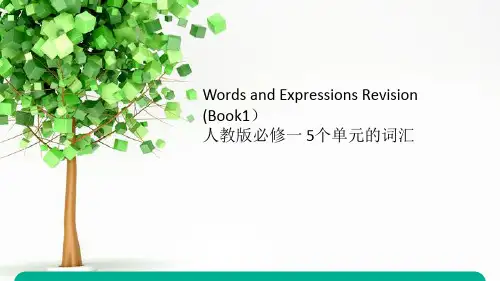
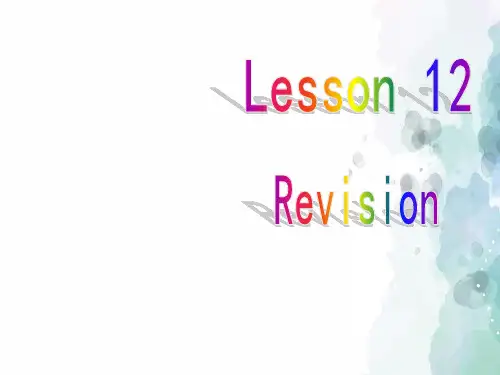
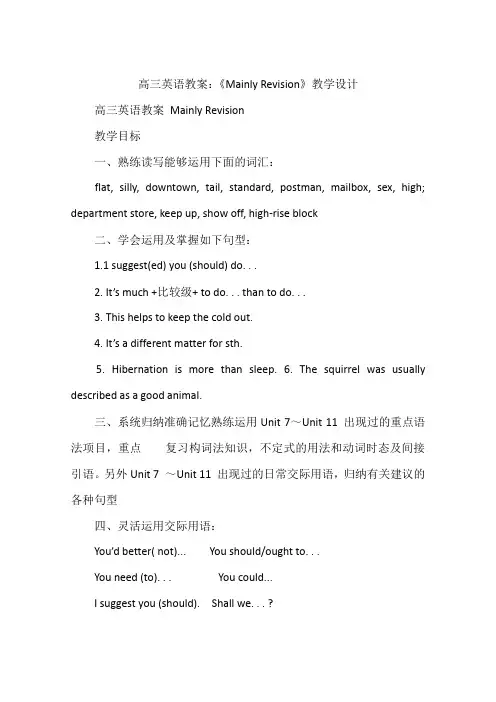
高三英语教案:《Mainly Revision》教学设计高三英语教案Mainly Revision教学目标一、熟练读写能够运用下面的词汇:flat, silly, downtown, tail, standard, postman, mailbox, sex, high; department store, keep up, show off, high-rise block二、学会运用及掌握如下句型:1.1 suggest(ed) you (should) do. . .2. It’s much +比较级+ to do. . . than to do. . .3. This helps to keep the cold out.4. It’s a different matter for sth.5. Hibernation is more than sleep.6. The squirrel was usually described as a good animal.三、系统归纳准确记忆熟练运用Unit 7~Unit 11 出现过的重点语法项目,重点复习构词法知识,不定式的用法和动词时态及间接引语。
另外Unit 7 ~Unit 11 出现过的日常交际用语,归纳有关建议的各种句型四、灵活运用交际用语:You’d better( not)...You should/ought to. . .You need (to). . .You could...I suggest you (should).Shall we. . . ?Let's... . What/How about. . . ?Why not. . . ? Why don't we / you. . . ?教学建议教学教法:本单元日常交际用语的重点是让学生掌握向他人提出建议和忠告的方式。
第45课第二部分已给出的短语和句型足以满足学生在实际阅读及写作中的需要,因此教师应从熟练运用的角度对学生进行指导和要求。
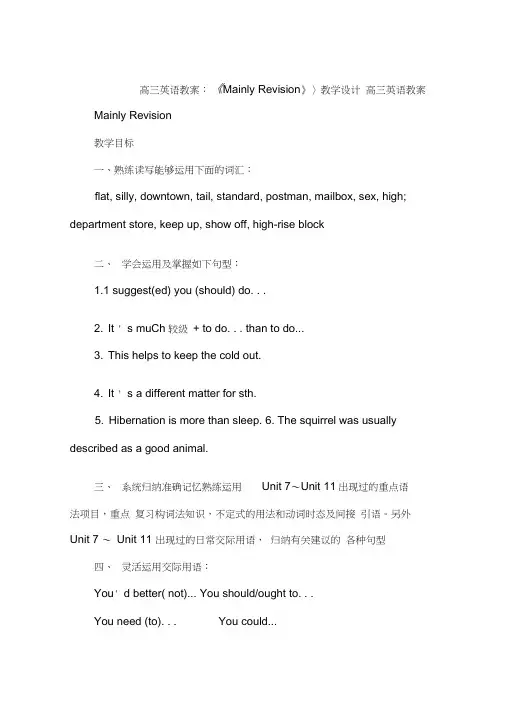
高三英语教案:《Mainly Revision》〉教学设计高三英语教案Mainly Revision教学目标一、熟练读写能够运用下面的词汇:flat, silly, downtown, tail, standard, postman, mailbox, sex, high; department store, keep up, show off, high-rise block二、学会运用及掌握如下句型:1.1 suggest(ed) you (should) do. . .2. It ' s muCh较级+ to do. . . than to do...3. This helps to keep the cold out.4. It ' s a different matter for sth.5. Hibernation is more than sleep.6. The squirrel was usually described as a good animal.三、系统归纳准确记忆熟练运用Unit 7〜Unit 11出现过的重点语法项目,重点复习构词法知识,不定式的用法和动词时态及间接引语。
另外Unit 7 〜Unit 11 出现过的日常交际用语,归纳有关建议的各种句型四、灵活运用交际用语:You' d better( not)... You should/ought to. . .You need (to). . . You could...I suggest you (should). Shall we. . . ?Let's... . What/How about. . . ?Why not. . . ? Why don't we / you. . . ? 教学建议教学教法:本单元日常交际用语的重点是让学生掌握向他人提出建议和忠告的方式。